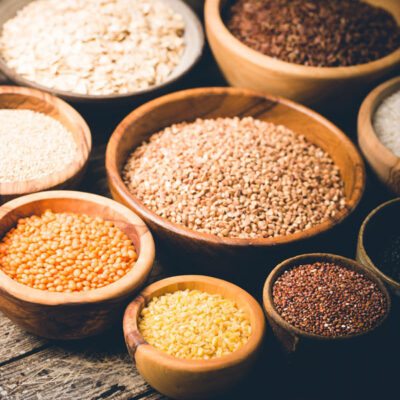Brands
5 Really Good Reasons to Make the Switch to Spelt Today
By: admin On: 28 August 2023

Spelt wheat has lower gluten and higher levels of protein. Spelt is a true grain that belongs to the family of what we know refer to as ancient grains. But exactly what is spelt?
What is spelt, exactly? Have you ever wondered why you should bother with it? Isn't it, after all, just another variety of wheat? The very thing that you are told to avoid.
Yet this often overlooked ancient grain offers numerous benefits to your health. Not just packed with nutrients it also has a unique, nutty flavour that sets it apart from the more neutral-tasting wheat. You'll be pleased to know that spelt is a sustainable choice too! Stick around as we take a look at five of the most compelling reasons why you should make the switch.
Reason 1: Spelt is Rich in Nutrients
Despite its similarities to wheat, spelt has a lower gluten content and higher levels of protein, fibre, vitamins, and minerals. Its gluten proteins are said to be easier to digest than the gluten in wheat.
Spelt contains an impressive array of minerals. Amongst them are iron and magnesium, both of which are essential to maintaining optimal health. Iron is critical for healthy blood, while magnesium helps regulate nerve and muscle function. But it doesn't stop there - it also contains phosphorus, potassium, and zinc, all of which have important roles to play.
A rich source of vitamins, spelt is a great source of B vitamins and is higher in niacin (B3) than wheat. B vitamins are essential for maintaining energy levels, optimal brain function, and healthy cell metabolism. Niacin in particular is used by the body to turn food into energy and provides support for the digestive system. Spelt is also a rich source of vitamin K which helps the body to absorb calcium.
Reason 2: Easier to Digest than Wheat
When you consume wheat, the gluten proteins can be difficult for your body to break down, leading to discomfort and inflammation. Spelt, on the other hand, has a slightly different gluten structure that makes it gentler on the digestive system.
It could be worth giving spelt a try to see if you notice a difference in how you feel after eating it.
Reason 3: A Sustainable Option
Spelt is a low-input crop, requiring minimal resources such as water and fertilizers, making it more sustainable and environmentally friendly than conventional crops. A hardy crop, spelt can withstand various weather conditions and is more resistant to pests and diseases, reducing the need for chemical treatments.
Farmers are increasingly turning to spelt as a low-input, high-quality alternative to other grains, making it a promising option for a more sustainable agriculture industry.
Another exciting advantage is its ability to thrive in challenging soil conditions. Unlike other crops, spelt is highly resistant to drought and can produce a greater yield in poor soil. This makes it an ideal crop for small organic farmers who want to grow food sustainably without relying on chemical fertilizers or large quantities of water.
Reason 4: Spelt is a Tasty Alternative
This ancient grain has a mild taste that can be described as sweet and nutty, with a slightly earthy undertone. Slightly sweeter than wheat it offers more depth of flavour to your dishes. Whilst it is soft like wheat, and not dense like some other grains, it can be a little heavier.
Reason 5: A Versatile Grain
Wheat is everywhere. Granted, it is now in a lot of places that it really does not need to be, but the fact that we find it so difficult to live without stands testament to its versatility. Yet there is very little that you can do with wheat that you cannot do with spelt. It does, in fact, behave in exactly the same way. There are also a few uses for spelt that you may not consider for wheat.
An ideal grain for a healthy breakfast
Spelt makes an ideal alternative to wheat in healthy breakfast cereals, adding another dimension of texture and flavour as well as a nutritional boost.
This award winning granola contains wholemeal spelt
Our organic 5 grain porridge contains spelt
Healthy baking and cooking
Although not suitable for gluten free baking, many people are turning to spelt flour as a stand in for standard wheat flour. Completely interchangeable with wheat flour, it can be used everywhere from thickening sauces, to cakes and bakes. Keep it in the cupboard instead of all purpose flour. White spelt flour is ideal for this, but you can swap out a small proportion with the wholemeal variety to add nutritional and textural variety.
Take a look at our organic spelt flour, available in wholemeal and white.
Use whole grains in cooking
Most of us do not use wheat in any other form than flour. Whole spelt grains can be used in the same way as any other whole grain, such as rice or barley. Like barley, spelt is available in its 'pearled' form, meaning that the outer husk has been processed to make it easier to cook. In this form it can be added to soups, salads and stews. You can even use it to make a super healthy risotto.
Explore our award winning range of healthy whole grain breakfast cereals.






